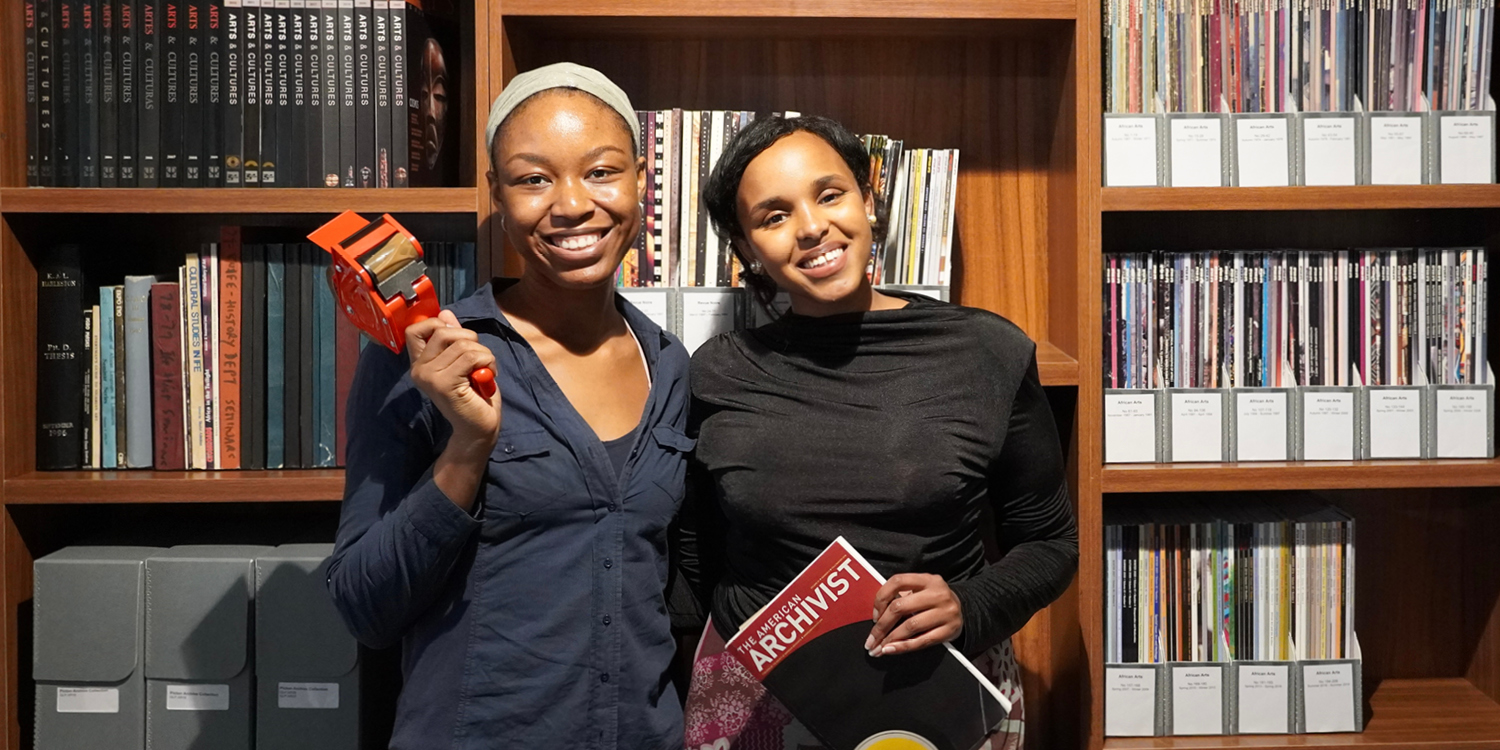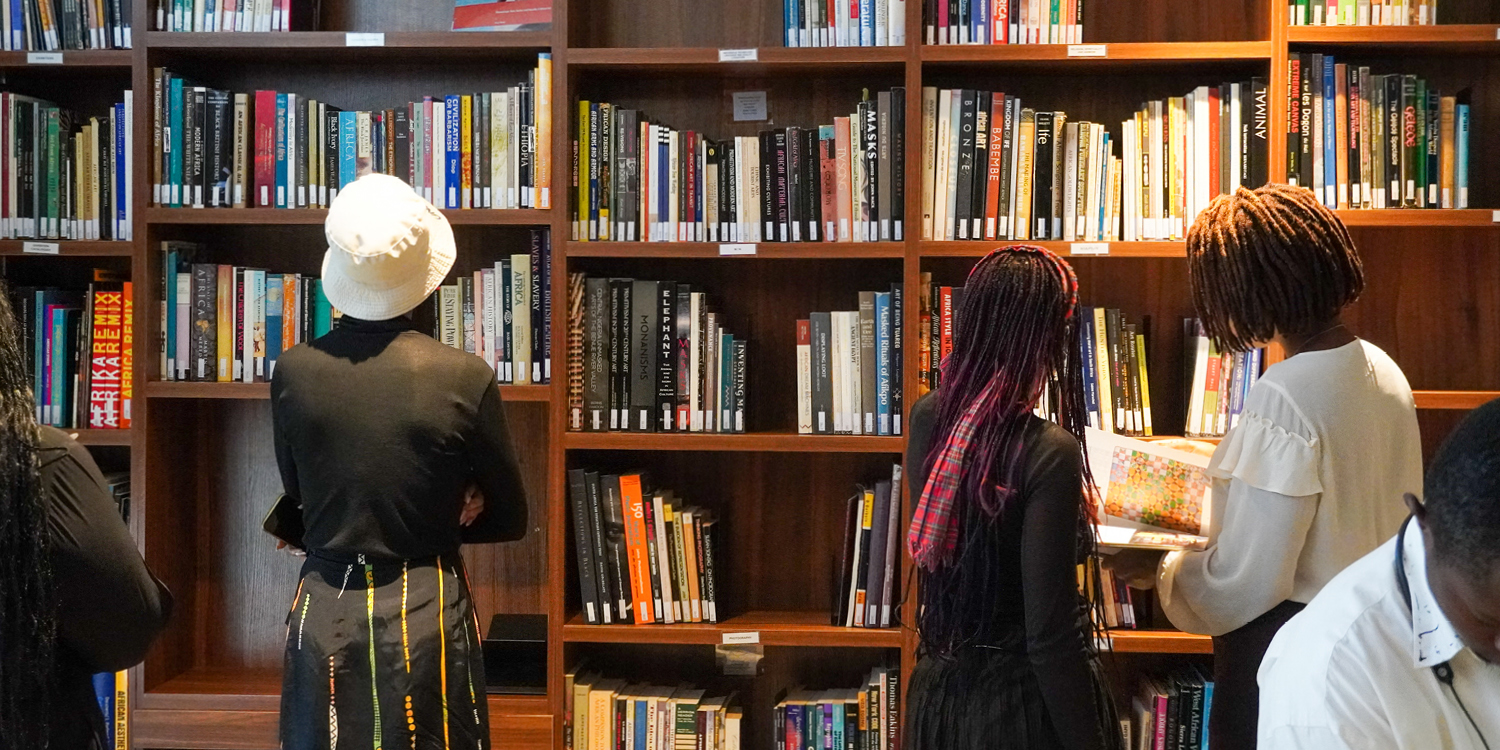In just two years, the G.A.S. Library and Picton Archive has grown into a rich collection of nearly 2,000 cultural research materials. This incredible achievement was made possible by generous book donations and financial support from our patrons, friends, and wider community. We are so proud to announce our first monthly library update, recapping the latest developments in the life of the G.A.S Library and Picton Archive.
The Picton Reference Collection and Archive: A Complete Catalogue
The Picton Reference Collection and Archive boast unique and insightful volumes on African art and culture carefully curated by John and Sue Picton since the collection’s birth during the couple’s maiden visit to Lagos in the 1960s when they respectively served within the National Museum, Onikan, and the National Museum Service. You can read all about the collection’s history in our 2022 interview with the couple here.
In December 2023, the final installment of the lifelong collection was successfully catalogued using the Library of Congress Classification, introduced by interim archivist Naima Hassan, who has worked with the collection since 2021. Naima’s work began in England alongside John and Sue and has been supported by current Projects & Library Coordinator, Tomiwa Adegbola, since October 2023.

G.A.S. Foundation Projects & Library Coordinator, Tomiwa Adegbola (L) and interim Archivist, Naima Hassan (Right) in front of the G.A.S. Picton Archive
Some of its rich, indigenous reference materials include publications on Igbo-Ukwu by the University of Ibadan (1970), ‘Yoruba Oral Traditions’ by the University of Ifé (1970), and more. Equally represented in the collection are expert African voices with various publications by renowned Nigerian scholar, Ekpo Eyo, influential curator, Okwui Enwezor, Chika Okeke-Agulu, etc.
The Picton archive is a treasure trove that houses some of the rarest journals and magazines on African art, including, African Arts, African Notes, Black Orpheus, Glendora Review, New Culture Magazine, Revue Noire, etc. as well as rare global art publications.
The G.A.S. Library and Picton Archive aims to launch its online catalogue alongside public user sessions later this year, increasing local accessibility to this fantastic resource.
Our Library Focussed Events
In addition to providing unique value to our residents, the G.A.S. Library and Picton Archive has attracted a lot of new activity from our wider community this year, starting with the Art & Research Workshop hosted by G.A.S. Fellow, Amanda Iheme in April. The event saw archivists, researchers, curators, and creatives, engage with select titles from the G.A.S. Library and Picton Archive in a supportive and collaborative environment where they could hone and share new research techniques. Similarly, Tiwani Contemporary resident Dawit L. Petros engaged performing artists from Q-dance Studio, Lagos in the insightful Professional Practice as Research workshop in May. Utilising materials from the Picton Reference Collection, the session demystified the institutional and professional frameworks that shape contemporary art practice, providing the perfect upskilling opportunity for emerging local artists.
 Guests at the Art & Research Workshop browse the G.A.S. Library and Picton Archive before their workshop study session
Guests at the Art & Research Workshop browse the G.A.S. Library and Picton Archive before their workshop study session
Up next in our library schedule is the Annotations Research Associates Programme, a 7-week exploration of African art festivals (FESMAN, Panafest, Zaire 74, and FESTAC’77) within African art library collections and archival materials in South West Nigeria. This programme falls under Re:assemblages, the G.A.S. Library and Picton Archives’ multi-year cultural exchange programme focussed on knowledge creation, capacity building, and cultural heritage preservation.
With so many exciting opportunities on the horizon, follow us on social media, and subscribe to our newsletter for more updates on the G.A.S. Library and Picton Archive.